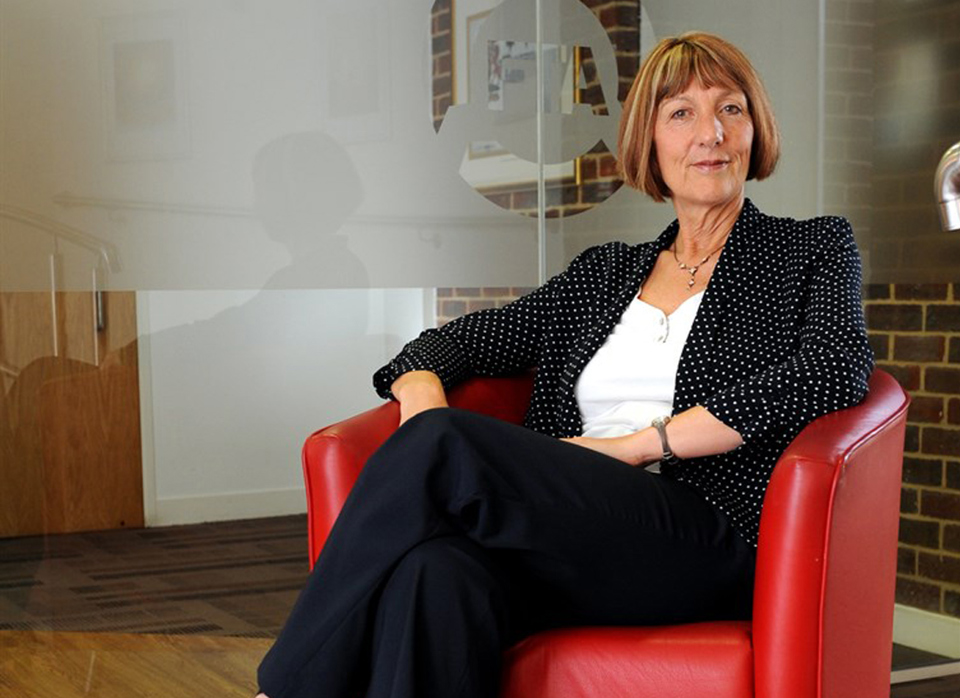Official training will give new fleet operators the skills needed to succeed in today’s industry, says fleet manager Liz Hollands. Sarah Tooze reports.
Liz Hollands had a hasty introduction to fleet management.
“I was given two lever arch files and a spreadsheet and told to get on with it,” she says.
That was in 1993 when she was working as an office manager at property services provider DTZ.
The company had been formed following the merger of Bernard Thorpe and Partners and Debenham, Tewson & Chinnocks, and needed someone to take responsibility for merging the companies’ fleets.
“They knew I was a petrol head – I raced motorbikes in the mid-1990s – and they basically said ‘we need someone to run our car fleet, would you like to do it?’. I inherited 350 cars from two separate companies. They were being run completely separately – one bought its cars outright, the other used contract hire. There were different grades, different insurers, different everything really, and I had to work out what was going on.”
Hollands got to grips with fleet management by reading Fleet News and becoming a member of ACFO. She was an ACFO director from 2006 to 2010 and is currently chairman of the southern region.
“ACFO has been a real help in terms of meeting other fleet managers, learning how they do things and working together on the wrangles,” Hollands says.
Her training has all been ‘on the job’. “Now I would always recommend that someone new to fleet management does take the official training because the one thing I notice from people who have done training, particularly the ICFM diploma, is that they are extremely confident and strategic in their thinking – which is what it takes,” she says.
Hollands admits that when she first assumed fleet responsibility it was “very much administration and letting things roll along rather than the cost saving and procurement lines that are followed now”.
During her 21 years in fleet, the role has become “much more strategic” because “we can outsource so much of it”.
But there is a risk that outsourcing can be taken too far. Without a fleet manager, Hollands believes companies may “lose sight of the extreme costs that are involved in running a fleet”.
“It’s the second or third highest cost in most companies, after salaries and pensions, so there is a huge amount of money and background work involved,” she says. “Companies think they can do without a fleet manager or they can have someone doing it as a temporary role, but I think they’ll lose money as a result of it.”
Hollands’s career at DTZ came to an end in 2010 as a result of outsourcing.
“With good fleet contacts I was lucky enough to hear about an upcoming fleet role at Freight Transport Association,” she says. “The only snag was that I had to do facilities as well as fleet, which requires running four premises, totalling around 35,000 square feet.
“One of my first jobs was to sell the office premises we owned, which was a Georgian house in Stirling, and lease the new modern office premises, so that was being flung in at the deep end from doing solely car fleet. But I loved it.”
Hollands spends about 75% of her time on facilities “purely because of the amount of buildings we have around the UK and the fact that something is always happening in one of them so that tends to be more of a reactive job”.
“Tunbridge Wells is quite a challenging building in itself,” she adds. “It’s a 1930s former Christian science church.”
Like fleet, Hollands believes the key to successful facilities management is having good, trustworthy suppliers.
FTA’s 192 cars are all on contract hire with maintenance agreements from Marshall Leasing.
Contract hire is favoured because it’s off balance sheet and provides regular budgeting.
“Some of the in-house admin is done by our receptionist, who is a member of my team, and my facilities assistant gives an eye to our pool car fleet and makes sure that it is always running safe and clean, but most of the admin work is done by Marshall Leasing,” Hollands explains.
When she worked at DTZ she used three leasing companies as it was a larger fleet (at its peak there were 650 company cars and 1,000 grey fleet vehicles) and the competition among the suppliers helped to get the best price.
But the drawback was that it took more internal management.
“You’ve got to duplicate all their systems into your own and then manage the reporting,” she says.
The fact that fleet is only part of Hollands’ role at FTA means that sole supply works best.
“It’s about confidence in the pricing you’re getting,” she says. “As long as you benchmark on a regular basis and you’re confident you’re getting the best price you can for the service you’re getting, then sole supply is fine. And with less dedicated fleet managers it’s going to be the only way for most fleets to go.”
Using a smaller leasing company rather than one of the top 10 providers has also proved beneficial.
“There is a very short chain of management so if you want to introduce something – provided it’s sensible – Marshall Leasing will agree to it within hours, whereas some of the bigger leasing companies will go away and form a committee to discuss it and then you hear nothing for months.”
Running the FTA fleet has meant switching from a perk to a job-need fleet. FTA’s cars are used by trainers, vehicle inspection engineers, the sales team and the policy department.
“The car is a real tool for the business so you understand the importance of vehicle downtime and having the right car for the job,” Hollands says.
FTA has about a dozen grey fleet drivers. Anyone doing more than 10,000 business miles qualifies for a company car.
Cars generally cover 90,000 miles over the course of four years and Hollands writes the contracts based on actual mileage, with any rewrites usually at the two-year point.
“It’s important the fleet we run reflects the fact that we’re a membership organisation,” Hollands says. “Predominantly the fleet is Škoda and Vauxhall; they’re not too ostentatious.
“The engineers are carrying a lot of kit so they need relatively big cars; we have quite a few Octavias, Superbs and Insignias.”
Reducing vehicle downtime is one of the challenges Hollands faces as engineers are always out on the road.
If a driver gets a puncture, they can change the wheel provided they have stopped in a sensible place – not on a motorway or busy main road – and they are competent and happy to do so.
She has introduced a policy that all vehicles must have a spare wheel, but some manufacturers are now putting an AdBlue tank – used to help cars comply with Euro6 emissions standards – where the spare wheel well was. “It is a real problem,” she says. “I’d like to see spare wheels back in cars again or a space saver.”
Fuel is also a challenge. Introducing a mileage capture system from The Miles Consultancy last October and getting drivers to reimburse their private mileage at actual fuel cost rather than at advisory fuel rates has helped reduce costs.
“It’s the fairest way of doing it; it’s actual cost,” Hollands says. “And the incentive is there for them to drive more efficiently.”
Drivers have also been through the Energy Saving Trust’s Smarter Driving training programme.
CO2 levels are restricted at different grades (105g/km, 125g/km, 130g/km and 140g/km) to further control costs.
Hollands has also introduced a driver excess for “careless incidents”, including ‘hit while parked’.
“It wasn’t particularly popular when first introduced, but we have seen evidence that careless incidents have reduced massively within the first three months,” she says. “It’s not about making money out of it, it’s about persuading drivers that they need to take care of their vehicles even when they’re leaving them parked up.”
Next on the agenda is detailed driver profiling and online learning (where appropriate) “to raise awareness of the importance of driver attitude”. “We don’t have a poor accident record but it’s another thing we can look at to try and cut incidents,” Hollands says.
She is considering vans for area engineers due to the amount of kit they carry but it is “early stages”.
“There are always new things to look at and try in fleet,” she says. “It’s what keeps me in the industry.”



















Login to comment
Comments
No comments have been made yet.